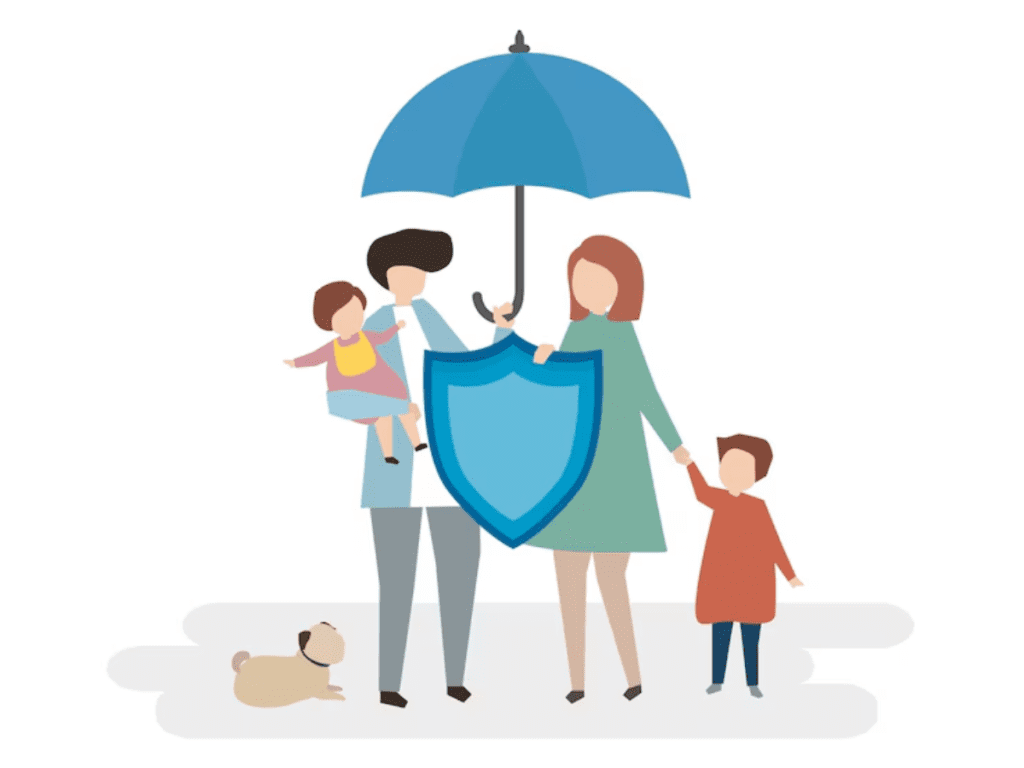Introduction
Life insurance is an important tool in guaranteeing the financial security of your loved ones in case of your premature death. It provides a means for your family to cover their financial responsibilities like debts, education, and daily expenses without too much distress. One of the most popular methods through which many people acquire life insurance is by way of their employers. This type of coverage, usually included as part of a group benefits program, is often made available to employees at no extra charge or at a low premium. Although this option can appear to be convenient and affordable, it is critical to realize the pros and cons of relying on employer-sponsored life insurance. Not all policies are the same, and selecting the correct one entails determining your individual financial objectives and risk tolerance. In this comprehensive guide, we will discuss the pros and cons of purchasing life insurance from your employer and compare it to individual life insurance policies.
What is Employer-Provided Life Insurance
Employer-provided life insurance, or group life insurance, is a policy that employers provide to employees as part of their overall compensation package.
The policies are usually term life insurance policies that offer coverage for as long as you are working for the company. Most policies provide a set amount of coverage, typically a multiple of your annual income. In most situations, the company pays the premium for a level of coverage, and you’re able to purchase additional coverage at group rates. #### Advantages of Purchasing Life Insurance through Your Employer
Employer-paid life insurance is a convenient arrangement that provides many advantages that render it an attractive option for many workers, particularly those seeking to acquire quick and simple coverage at little or no initial expense.
Easy Enrollment Process
One of the primary advantages of employer life insurance is the straightforward enrollment process. Unlike individual life insurance policies, which often require extensive applications and medical underwriting, employer-provided policies typically do not require medical exams. Enrollment is generally handled through human resources during your initial hiring or during open enrollment periods.
Low or No Cost for Basic Coverage
Many employers offer a basic level of life insurance coverage with no additional charge to the employee. The minimum coverage is generally one or two times your current salary. This is the minimum level of protection and may be especially valuable if you already don’t have another type of life insurance.
Along with the basic coverage, employers usually permit workers to buy extra life coverage. These extra amounts are usually provided at lower group rates than private insurers offer. Group rates can be advantageous, particularly for workers who could struggle with securing individual coverage because of age or sickness.
No Medical Exam for Basic or Some Supplemental Coverage
Another significant benefit is the lack of medical exams for minimum coverage and in certain situations for supplementary coverage up to a point. This benefit provides workers with pre-existing health conditions or riskier health profiles the opportunity to receive life insurance they would otherwise be excluded from or pay higher premiums for.
Easy Premium Payments
Premiums for any additional life insurance bought from your employer are typically automatically deducted from your salary. This arrangement minimizes the inconvenience of remembering due dates and making payments manually, so your coverage stays active without administrative hassle.
Guaranteed Issue for New Employees
Most employer-sponsored plans are guaranteed issue for new hires, so you can get coverage no matter what your health is if you sign up during your first eligibility period. This kind of access can be critical for people who are not insurable by private companies.
Drawbacks of Employer-Provided Life Insurance
In addition to the numerous benefits of life insurance through one’s employer, there are important disadvantages to be considered as well. You could end up in a precarious financial situation for the long term and your family’s as well by depending on only this kind of insurance.
Inadequate Coverage for Future Needs
The biggest limitation of employer life insurance is that the coverage level is usually capped. Basic policies usually only cover one to two times your annual salary. Even with additional voluntary supplemental insurance, the overall figure may still fall short of how much your family will need for future expenses like mortgages, college education, and regular living expenses. Specialists recommend coverage of at least ten times your yearly salary.
Loss of Coverage After Leaving Job
Another significant drawback is that the coverage is tied to your job. If you quit your job for any reason either by resignation or due to company layoffs or downsizing you can lose your life insurance coverage. Although some employers provide the choice of converting your policy to an individual policy upon quitting the job this typically involves increased premiums and fewer benefits.
Limited Portability
Group life insurance is not usually portable. If your policy is neither convertible nor portable, you would be left in a lurch when you lose your job or change jobs. Even if a policy is portable, you have to take other steps within some time frame from the date when you leave the job, and this can prove to be somewhat of an administrative hassle.
Increasing Costs of Older Workers
While group insurance may be cheap for younger workers premiums for additional coverage tend to rise as you get older. These rises can render the policy less affordable in the long run. Individual life insurance policies, on the other hand, can provide level premiums that do not change throughout the term or duration of the policy.
Few Customization Options
Company-sponsored life insurance plans usually allow very little variation in options. You might not have the choice of selecting policy terms modify coverage amounts or incorporate additional features such as critical illness riders disability income riders or return of premium. Lack of choices is a setback for those who have particular money management needs.
Most group life insurance policies end at retirement or when you leave the employer. If this is your only coverage, you could be left with no protection at a time when it would cost more and be harder to buy new life insurance because of age and health issues.
Differences Between Employer and Individual Life Insurance
In order to make an educated decision it is critical to know the main distinctions between employer-sponsored life insurance and personal life insurance policies. Personal policies are bought from an insurance firm directly and are more flexible regarding coverage amount policy duration and available add-ons. Although these policies usually demand a medical exam they also enable you to have uninterrupted coverage irrespective of employment status changes.
Control and Ownership
With an individual policy you own the coverage and have complete control over its terms. It follows you wherever you work. Employer-sponsored policies, on the other hand, are owned by the employer and can be canceled or changed without your permission.
Coverage Flexibility
Individual policies can be customized to fit your specific requirements. You may select term or permanent life insurance choose coverage levels and add optional riders. Employer-sponsored policies are less flexible and typically limited to preselected choices.
Long-Term Stability
Since individual policies are not employment related they offer long-term protection. Once approved and active your individual policy will stay in effect as long as you keep paying the premiums. Employer coverage ceases if you change jobs retire or your employer stops offering the benefit.
Techniques for Blending Employer and Personal Life Insurance
For most people the optimal strategy is to utilize employer-sponsored life insurance as secondary coverage and not as sole coverage. Through both types of coverage you have the advantage of obtaining low cost group coverage while also receiving long-term security and flexibility with a personal policy.
Begin with Employer Coverage
capitalize on the low- or no-cost basic coverage through your employer. It gives you instant financial relief and is used as a cornerstone layer of coverage.
Consider Your Family’s Financial Requirements
Determine the amount of life insurance your loved ones would need to continue to live at the same level collect debts and support long-term plans. This amount will determine the amount of supplementary coverage you may need above your employer’s offerings.
Buy a Personal Policy for Complete Protection
Buy a term or permanent life policy independent of your company. This personal policy must be crafted to take care of your family’s finances regardless of your employment.
Keep Individual Policy Even When Employer Coverage is Active
Do not cancel your personal policy simply because you have coverage at work. The employer policy can be changed and may be terminated or cut back at any time.
Final Thoughts
Purchasing life insurance from your employer has a number of benefits such as affordability convenience and guaranteed acceptance. It can be a great beginning for financial protection particularly for young professionals or individuals with health problems. But it is not without its disadvantages. The limited coverage lack of portability and reliance on your employment status make it risky to depend entirely on employer-sponsored life insurance.
To ensure full protection for your loved ones it is wise to evaluate your long-term needs and consider supplementing employer-provided coverage with a personal life insurance policy.
A balanced approach allows you to benefit from the cost-effectiveness of group insurance while also maintaining the flexibility and security of individual coverage. By taking careful consideration of the advantages and disadvantages and correlating your insurance choices with your own financial objectives you can develop a life insurance plan that really secures the future of your family.

